Walt was certainly a visionary when he brought us “It’s a Small World” to the 1964-1965 New York World’s Fair. His sense of wanderlust and appreciation for world cultures demonstrated how close we all truly are in spite of oceans and land masses. As our ability to travel farther, quicker, and easier evolved, so too, did our interconnectedness, and our ability to bring back foreign souvenirs from the exciting places we have visited. However, lately, there seems to be an unwanted souvenir returning home with world travelers – – the Coronavirus or COVID-19.
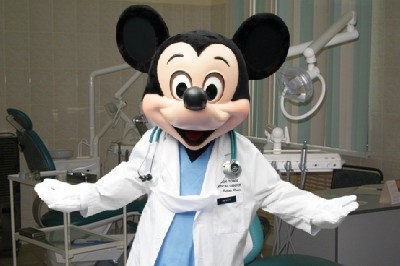
The Coronavirus has obviously become the biggest concern for both international and domestic travelers lately. As Travel Professionals, my fellow Travel Advisors and I have been spending a lot of time in webinars, viewing reports and official statements regarding this issue on a daily basis. Although information is constantly being updated, this is what is known at the time of writing this article.
What is the Coronavirus?
The Coronavirus is a broad term that encompasses both the SARS (Severe Acute Respiratory Syndrome) and MERS (Middle East Respiratory Syndrome) viruses. The current virus is a variant of the SARS virus, and has been renamed COVID-19, or SARS-CoV-2. This virus has been around for a while, but as viruses do, they will mutate and wreak havoc, just like flu viruses. However, the Coronaviruses really focus on the respiratory system, making those persons with already compromised respiratory systems more vulnerable to the disease than others. According to Dr. Geoff Tothill, Chief Medical Officer of the International Medical Group, and the World Health Organization (WHO), “The most common symptoms are fever, cough, and breathlessness. Most patients have mild disease, with some 20% of patients progressing to severe disease. Incubation period is 2 – 14 days, and most infectivity occurs when one is symptomatic.”

The news of the COVID-19 outbreak in Wuhan, China, was reported to the World Health Organization on December 31, 2019. Since then, the virus has been exported via travelers arriving from affected areas to 56 countries, including the United States.
How does it spread, and how to protect/prevent?
Again, according to the World Health Organization, “Cases are seen in higher numbers in specific geographic areas, usually as a result of close person to person spread.” This would also mean travel destinations where tourism is high and congested, thus, practical measures must be taken. We all know the drill regarding cold and flu season, and this is no different.
- Washing hands well, thoroughly, and often.
- Using an alcohol based hand sanitizer that contains at least 60% alcohol. (Yes, even hand sanitizer has expiration dates, so check those!)
- Avoid proximity to symptomatic people.
- Use cough etiquette! Maintain distance, cover coughs and sneezes with disposable tissues or clothing, and wash hands.
- Avoid areas where people congregate when travelling and seek local help if you become unwell.
- Carry sanitizing wipes to wipe down trays and armrests on flights.
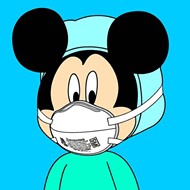
If you are concerned about picking something up from public places, then there is great news – – so is everyone else! During cold and flu season, we all tend to get a bit lax about our sneezing, coughing, hand washing and general consideration of others when symptoms arise. Children are one of the most vulnerable, yet they are perhaps the worst to keep reminding of these measures! Sometimes, it takes something like the warnings of this current virus to keep us mindful of others and diligent in our own personal care. Cold and flu season is not over yet, and it presents a bigger risk to us than the COVID-19.
Do I cancel my travel plans because of COVID-19?
Unless you are prevented from traveling to, or from, a particular area of the world where travel is restricted anyways, the answer would be, NO. This includes places like Disney Parks. Yes, all of the Disney Parks in Asia have been closed for a period of three weeks starting February 28th, but the Disney Parks in the United States and Europe have not. Spokespersons from Universal and Disney in the U.S. are working closely with the Center for Disease Control to ensure the safety of guests and employees on a daily basis. As of now, the Parks are running on a normal schedule. Just use common sense, and the above preventative methods, especially washing those hands!
Furthermore, if you are looking to cancel your trip in fear of the COVID-19, you probably won’t be getting that full refund of your travel money. Speak to your Travel Advisor regarding your Travel Protection Plans. Unless you cancel for very specific reasons as specified in your policy, even a “Cancel for Any Reason” policy will not fully refund you simply because you fear the virus. Cruise Lines and other tour operators are implementing the same policy for domestic and international travel. Cruise lines are also implementing strict pre-screening procedures to ensure the health and safety of all passengers and crew members.
Overcoming the fear…
Whenever an outbreak such as this occurs, it should always be taken very seriously. However, we must understand what it is, and what it is not. What is most important is that it is going to run its course whether we like it or not – – as have all the other viruses and diseases that have been spread throughout the years. COVID-19 is more difficult to contract than the flu. According to the Centers for Disease Control, out of all those who have been infected with COVID-19 globally, approximately 2,463 have died from it. The flu, however, has claimed more than 4,800 lives so far this year. The preventative measures to take in avoiding each virus is the same, especially WASHING THOSE HANDS!
Any public place of transportation is on alert and taking great measures to ensure that surfaces are disinfected, air filters are functioning properly (though there has been no indication that this is airborne), hand sanitizing stations are plentiful and accessible, and medical staff is readily available should any person present a symptom. Hospitals are being prepared and the CDC is issuing directives as to what should be done at home to prepare in the event someone should fall ill.( CDC Household Preparedness ) Even more so, the CDC is encouraging people to keep in contact with and watch over, those who may not have someone to notify or care for them in the event the become ill for any reason. Oddly, we seem to be at a point where we want to keep our distance, yet it is bringing us closer together as a community out of concern for our fellow human beings.

People have, and will continue to travel. Business will still be conducted. Cruise ships will still sail. Planes will still fly. Fear can be used to keep us more alert and serve as a reminder of what we should and should not be doing, but it should never stop us from living. We have all learned that lesson over the past century, time and time again. More importantly, Walt, Mickey, Main St. U.S.A, and the vision of that glorious Castle will still be there to greet us, giving us comfort that it is indeed a small world after all, and it is still ours to explore – – just with hand sanitizer. After all, don’t we need the magic now more than EVER?
- 2020: The Year of Thanksgiving and Hope - 11/26/2020
- Disney….A Beacon of Hope - 07/31/2020
- Traveling and the Coronavirus:It Truly is a Small World After All! - 03/04/2020

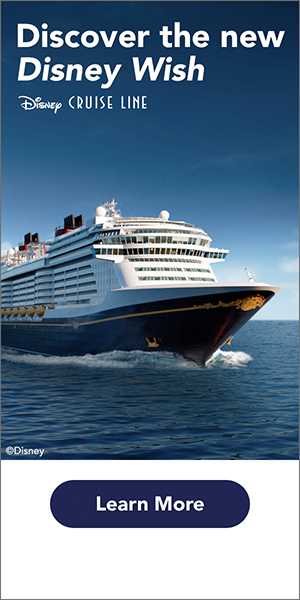



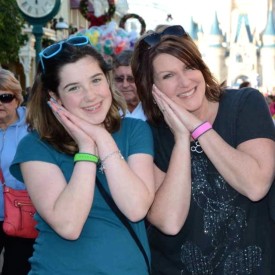
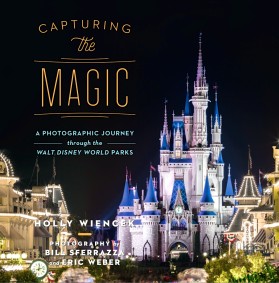


Recent Comments